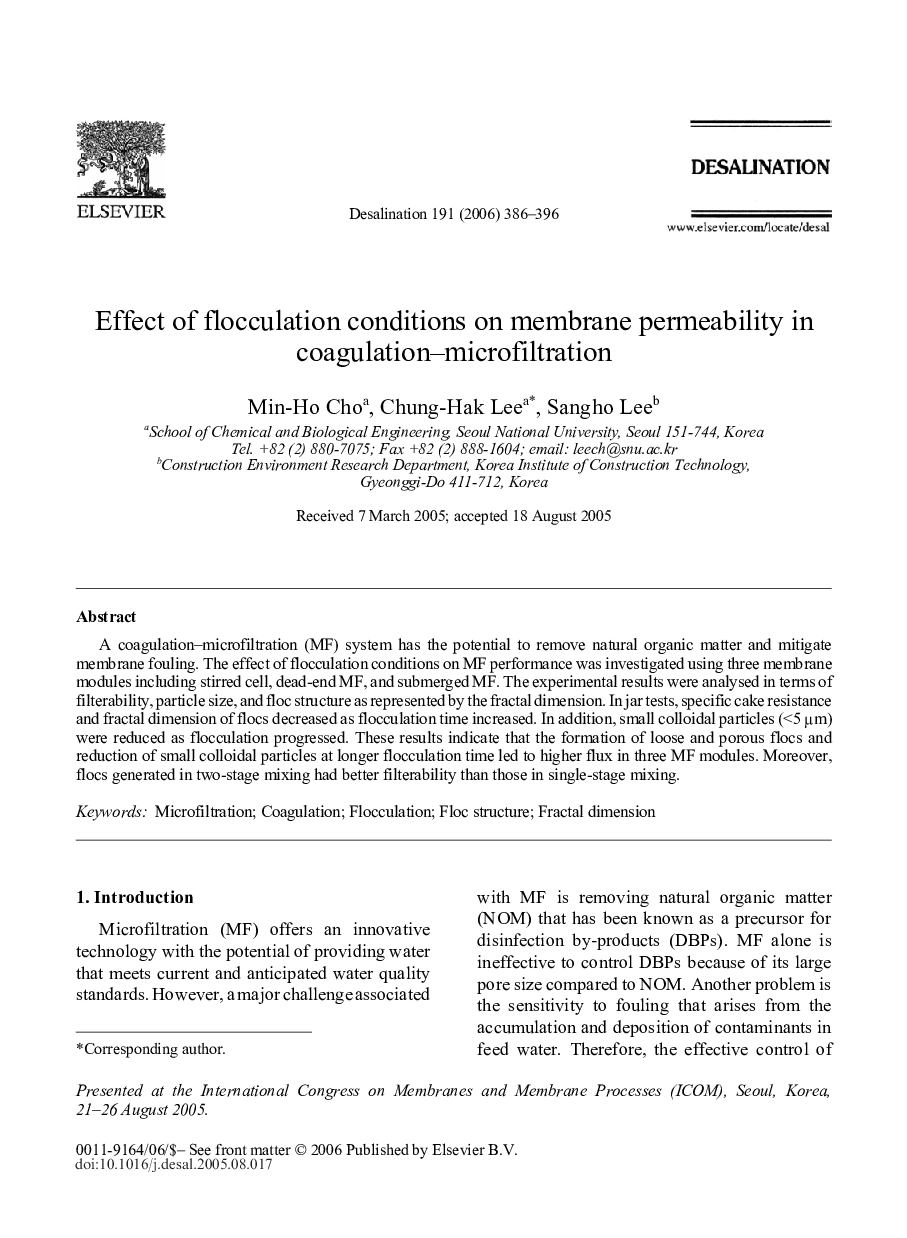| Article ID | Journal | Published Year | Pages | File Type |
|---|---|---|---|---|
| 628981 | Desalination | 2006 | 11 Pages |
Abstract
A coagulation-microfiltration (MF) system has the potential to remove natural organic matter and mitigate membrane fouling. The effect of flocculation conditions on MF performance was investigated using three membrane modules including stirred cell, dead-end MF, and submerged MF. The experimental results were analysed in terms of filterability, particle size, and floc structure as represented by the fractal dimension. In jar tests, specific cake resistance and fractal dimension of flocs decreased as flocculation time increased. In addition, small colloidal particles (<5 µm) were reduced as flocculation progressed. These results indicate that the formation of loose and porous flocs and reduction of small colloidal particles at longer flocculation time led to higher flux in three MF modules. Moreover, flocs generated in two-stage mixing had better filterability than those in single-stage mixing.
Related Topics
Physical Sciences and Engineering
Chemical Engineering
Filtration and Separation
Authors
Min-Ho Cho, Chung-Hak Lee, Sangho Lee,
